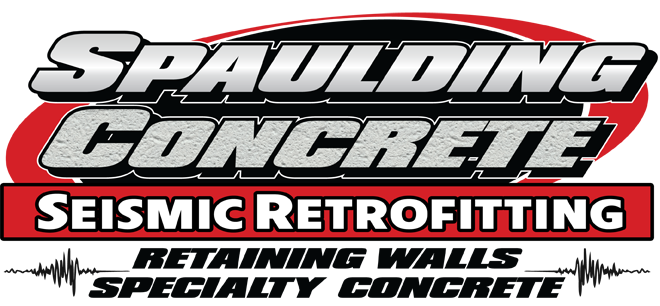Concrete Walls Vs Block Walls Pros And Cons
You’re probably wondering which foundation type is optimal for your home. There are two popular options: standard cinder block and poured concrete walls, with each having its own advantages and disadvantages depending on what you want in a structure’s look or strength levels. This article will outline some of the key differences between these two types of exterior walls so that you can make an informed decision about what type of building material is best suited for your needs.
What Are Poured Concrete Walls?
Poured concrete walls are unquestionably more durable than block walls. They don’t have the same kinds of joints that you see between blocks, but they do offer a rock-solid foundation with an acoustic defense system in place for your home’s interior design needs!
Poured concrete walls are a great way to give your home that modern, industrial look. These poured cement surfaces have many different shapes and sizes available which can be used for any project from small renovations all the way up through large buildings like convention centers or hotels!
PROS
- When compared to block walls, poured concrete buildings offer the greatest fire safety rating.
- Poured concrete walls are tough to beat. They’re extremely strong and have much greater flexural strength than brick or block structures do, which makes them great for supporting heavy loads on top of themselves without cracking like other materials may be forced into doing if the weight becomes too intense.
- Builders have more design options when it comes to poured concrete walls. Regardless of the foundation type, they can make last-minute adjustments with ease!
- Poured concrete walls are less susceptible to water damage. They have fewer joints, making them stronger and more resistant than brick or stone masonry construction; external waterproofing means there’s no risk of cracks appearing over time.
CONS
- They initially cost more.
- The poured concrete foundation may lose strength if spalling develops during the curing process.
- Poured concrete foundations may lose their strength if spalling develops during the curing process.
- It’s not easy to truck in wet concrete, but this task might be challenging and time-consuming for contractors, not to mention expensive.
What Are Block Walls?
Blocks of concrete are used for building. They come in different forms and heights, but their most common dimensions are 16 inches long by 8 inches wide at the base or thickness with an inch-high wall that can be either solid or hollow.
Concrete blocks are a valuable homebuilding material since they can be used in many different ways. For example, concrete block structures have been put up as residential buildings and even for laying roads! Blocks come in many forms including solid, which makes them stronger or hollow shapes like those found at construction sites where there is more space underneath than on top so water doesn’t accumulate easily – this helps prevent early deterioration from moisture exposure which may lead to cracks later down the line.
PROS
- Concrete blocks are great for foundations and basement walls because they are stronger than poured concrete when properly constructed and erected.
- To configure and secure the blocks, no formwork is necessary, as is the case with poured concrete foundations.
- Concrete blocks may be used to swiftly construct partition walls in any home, and their cores or voids can be filled with steel reinforcing rods and concrete for added strength.
- Termites and high temperatures have little effect on concrete blocks, and it is almost silent, depending on building quality.
- Concrete blocks also provide insulation from the cold and heat, potentially lowering a home’s energy use.
CONS
- An air and moisture barrier is frequently required when building a block wall, which adds additional trade and more work to the foundation project.
- If the water in the soil around a structure piles up, block walls may bend and collapse, requiring costly repairs.
- Block wall foundations offer high load-bearing strength; but, if not properly supported with rebar, the foundation will lose its lateral strength.
We hope this article has been helpful in your decision about whether to use a concrete wall or block walls. If you have any questions, please feel free to call us and we will do our best to answer them for you!

Are You Looking for a Company to Build a Foundation for Your New Home?
Spaulding Concrete has been the SF Bay Area’s top foundation builders for over 30 years. We’re here to fix your home’s foundation, no matter what problem may exist. We have the specialized equipment, services and professional experience that you need to make permanent improvements to your building’s foundation. To get you started on the right foot, we would be happy to give you a free quote for the repair of the foundation. When you reach out by phone or email we will have one of our foundation experts answer any questions you have and explain how we can restore integrity and structural stability to your home or company building permanently. Successful concrete projects require careful planning and thorough preparation. Spaulding Concrete reviews the site and designs to ensure that the concrete and base structure follows the criteria for the planned use and that the layout and finishes are suitable for the project. The qualified concrete experts at Spaulding Concrete will be on schedule, on budget and meet or exceed standards by careful planning, professional execution, and strict quality control.
To schedule your free quote, contact us today! We are proud to serve Orinda, Lafayette, Moraga, Pleasant Hill, Concord, Martinez, Pittsburg, Antioch, Brentwood and the surrounding areas.

